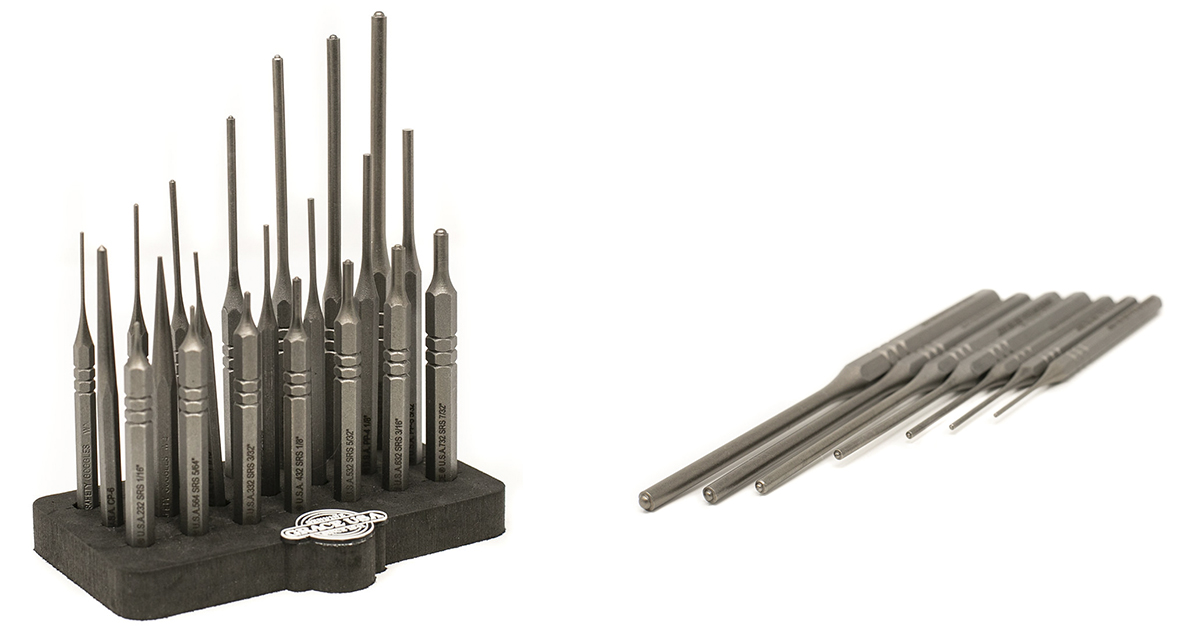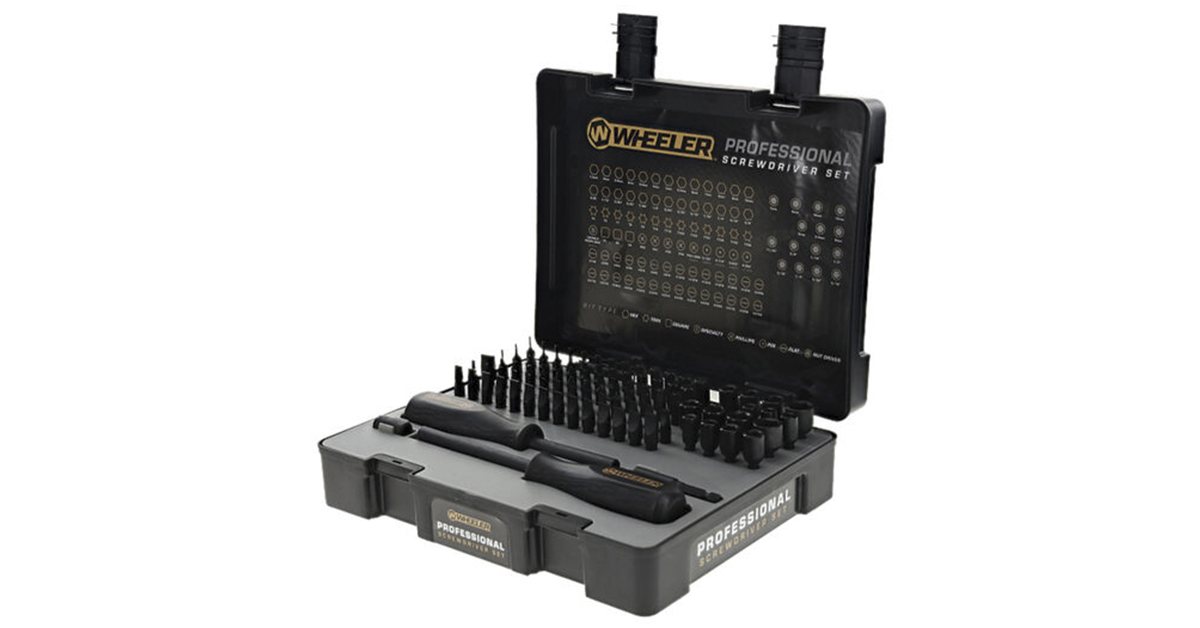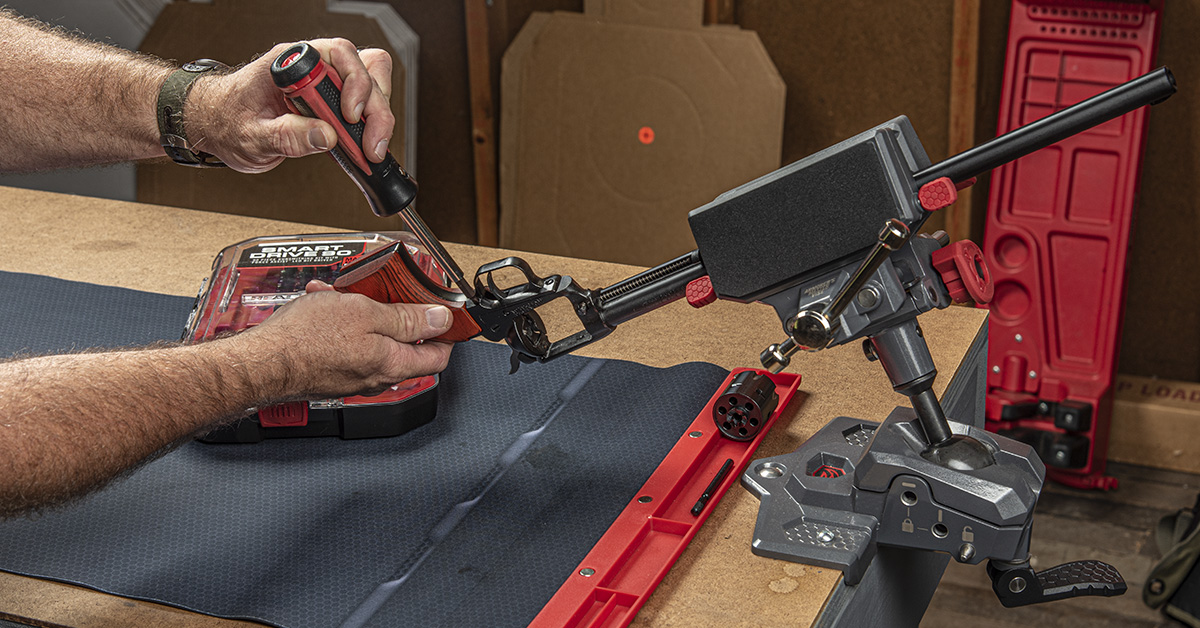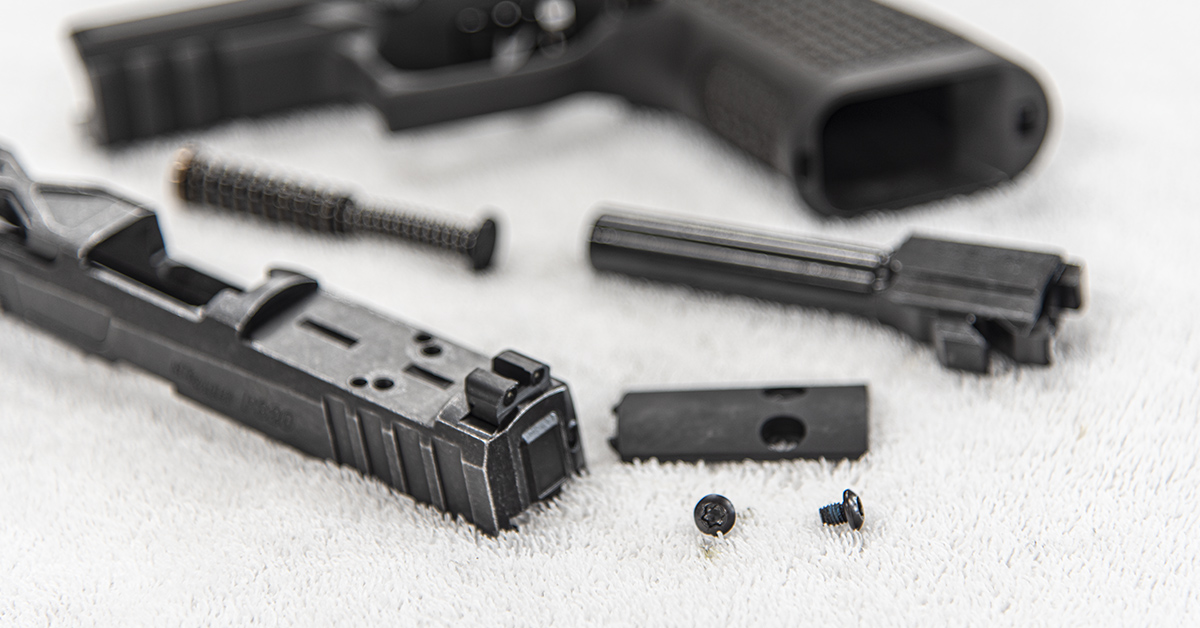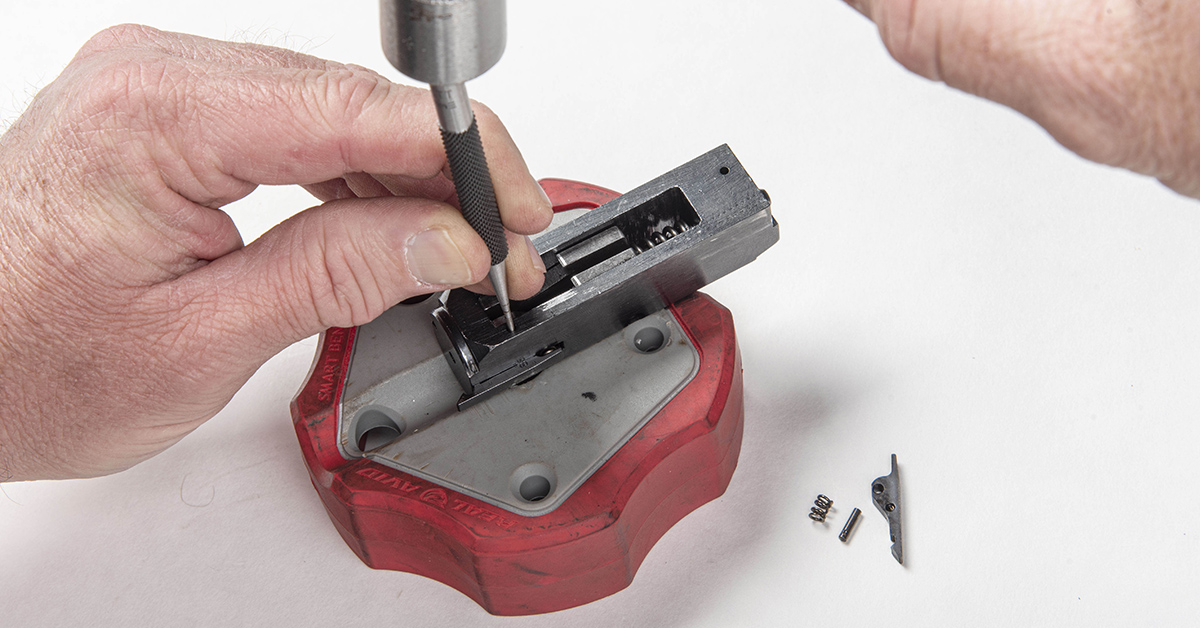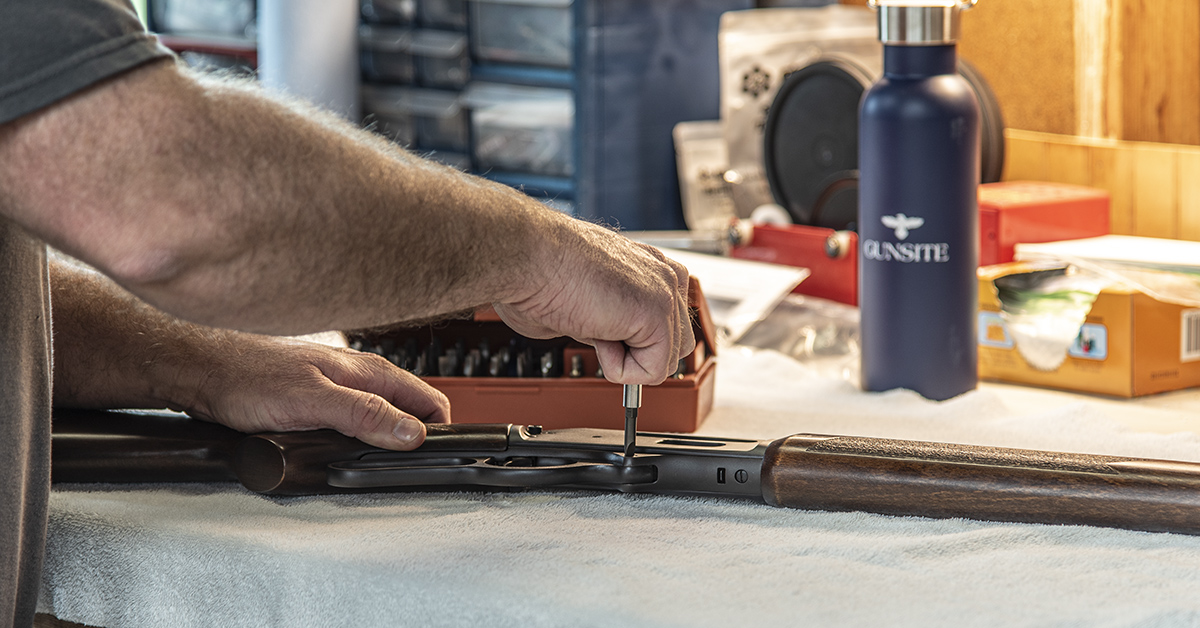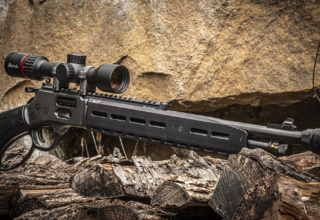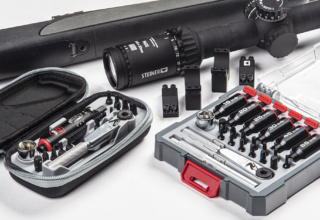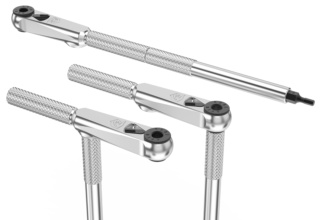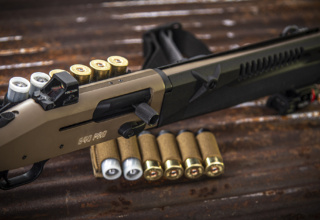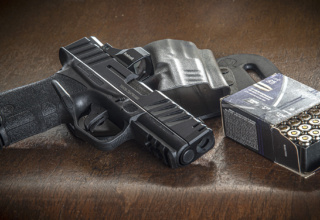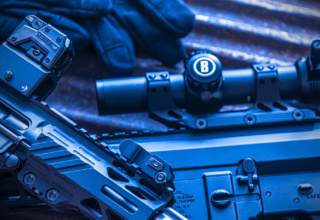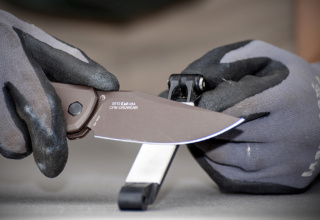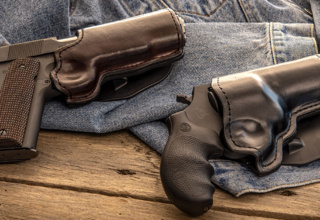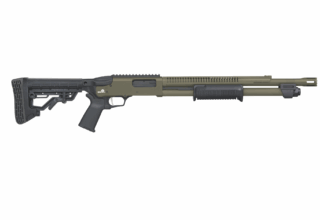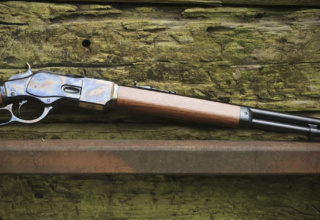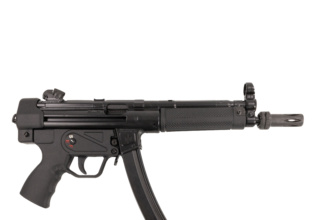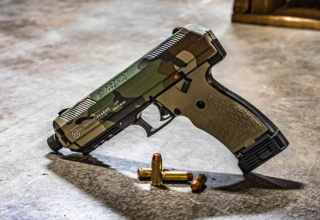With these DIY Gun Bench Tools, you’ll have what you need to cover most DIY gun bench projects
by Rob Reaser
Folks have been tinkering with guns ever since guns became a thing. No doubt pirates were carving fanciful designs into their blunderbuss stocks as they lounged shipboard in the Caribbean. We know that America’s pioneering settlers built, repaired, and embellished their long rifles as a matter of course because, back in the day, everyone needed to be something of a gunsmith or else they would go hungry…or become buzzard bait.
As firearms became more refined and sophisticated, gun repair and modification entered the almost exclusive domain of the trained gunsmith.
In its truest form, gunsmithing is about fabrication. It’s about crafting precision components from raw stock, performing difficult repairs to metal components using everything from hand files to milling machines, cutting threads, reaming chambers, and a pile more tasks and operations that take years of practice to achieve master craftsman competency. Gunsmiths are the ones who “can figure out what’s wrong” when our enthusiast-level efforts fail to deliver positive results.
We are not those folks. As DIYers, we take advantage of the often-brilliant engineering of others who, for example, develop ultra-refined trigger systems that we can install by tapping on a couple of pins or who design pistol slides that allow us to add our own sight systems, also engineered by someone else.
We are not gunsmiths, so let’s leave that title to those who have earned it the hard way.
Fortunately, the yearning and ability to “do it yourself” has grown exponentially relative to innovations and new technology over the last couple of decades. The AR-15 spurred much of this, and now, with the modular nature of polymer-framed striker-fired pistols and the growing popularity of chassis rifles, the opportunities for DIY work have reached an unprecedented level.
In all this, there are some core tools that almost every gun project requires. Whether you are working on a handgun, shotgun, or a rifle, it is a sure bet that you will need all of these five items listed below. Thus, it is important that you buy quality goods. Invest in premium tools now and you will not regret it.
Quality Punches
I don’t believe there is any modern gun that does not utilize pins or roll springs (roll pins) to keep components in place. Some pins, such as those securing an AR or shotgun trigger group to the receiver, can be pushed out by hand with a flat punch. Disassemble a Mossberg 500 bolt, though, and you need slender punches strong enough to withstand firm hammer blows.
Punches, either roll pin or flat-faced, are something you should spend good money on. Forget the imported varieties you find in the big hardware store chains. A couple of solid brands that will deliver the expected performance for your investment include Starrett and Grace USA Tools. The latter specializes, among other categories, in manufacturing premium gunsmithing tools in the U.S.
The Grace USA 21-pc. Steel Punch Set is one for your consideration. Made from high-carbon Molbendenum tool steel, these full-length-hardened punches are built with the kind of attention to detail that earn their $164 MSRP. The striking ends, for example, are tempered to withstand years of hammer blows, and a really cool feature is that the shanks come with a slight reverse taper. If you have ever had a punch get stuck in the work piece upon driving a pin out, you’ll understand the value of this design. Included in the kit are seven (each) roll spring and short roll pin punches sized 1/16 through 7/32 inches, plus a steel punch gunsmith set (1/16- through 5/32-inch punches along with a 1/4 center punch and a 1/16 starter punch). The kit also includes a bench block tool holder.
Quality Bit Driver Set
The number one killer of screws, metal finishes, woodwork, and the source of more frustration than anything for the DIY gun enthusiast is poor-quality and ill-fitting bits. If the bits you use are not of good quality and are not precision-machined and correctly contoured, you are setting yourself up for disaster.
As an example, too many folks simply grab the same screwdriver they employ for auto or home DIY work and use them to attack their gun screws. These general-use tapered bits aren’t designed to properly engage the screw heads. As a result, they tend to damage the screw head slots to the point that the screw must be drilled out. The poor fitment also leads to the tool slipping under torque, scarring gun metal finishes or gouging that beautiful wood stock.
Bits must be of the appropriate size (depth and width) to fully engage the screw head, and there must be maximum contact between the screw head and bit surfaces to ensure a proper “bite” and torque application. Anything less and you risk damaging the work piece.
If you do enough gun work, you’ll understand the need for a large repertoire of bits. The Wheeler 100-pc. Professional Screwdriver Set is a good choice. In a single, rugged case you will find pretty much every size you’ll encounter in a gun repair, maintenance, or modification project. This kit comes with flat, SAE hex, metric hex, Torx, Phillips, tamper-proof pin, SAE and metric nut bits, and several specialty bits. The slot head bits are hollow-ground, so you won’t bugger the screw heads. Two drivers are included, featuring rubber over-molded handles for a sure grip and magnetized tips to assist in small screw placement and to help prevent screw loss. The $109.99 MSRP is worth every penny.
Bench Vise
A bench vise is a must-have if you are serious about DIY gun work. Yes, you can get away without using one for a lot of projects, but you also increase the fumble factor and boost the odds that you may damage the work piece because the task requires a “third hand.” For some projects, such as installing an AR-15 barrel nut or torqueing a muzzle brake, a bench vise is essential.
If you are planning to do some really heavy lifting, such as torqueing a barrel onto a Remington 700 action, a heavy-duty vise is required. For most DIY-level gun work, though, you don’t need a vise that can anchor a bass boat.
For the last few years, I have found myself using the Real Avid Master Gun Vise for most of my projects — everything from pistol work to AR-15 builds to stock inletting. Given its 360-degree rotation and ball-and-socket construction, I admit to being skeptical at first about its ability to hold up to serious gun work, but time has proven that skepticism unwarranted. The vise holds firm to the work piece and provides the necessary grip for most torqueing applications.
Since its introduction, Real Avid has made use of the Master Gun Vise’s interchangeable jaw design, coming out with several different sleeves to suit specific gun applications.
The Master Gun Vise is a big buy at $299.99 MSRP, but if you plan to do a lot of your own work — especially on long guns — this is one vise you should consider.
Towels
Gun parts are small. Sometimes they are extremely small, particularly when it comes to screws, springs, pins, and detents. While there many cleaning mats on the market intended for the DIYer (and they are quite good at absorbing oils and grease and won’t slip around on the bench thanks to their rubberized backing), you won’t go wrong by working over an old bath towel when disassembling and assembling a firearm.
Small parts tend to drop out of the work piece unexpectedly. Let them fall onto a flat, smooth mat and there is a good chance that something is going to hit the floor and you may not find it. The finger-like fibers of a bath towel will prevent components like springs, detent balls, and roll pins from getting away from you. Yes, towels get dirty, and you’ll need to keep them clean, but sacrifice one for your gun work and you’ll be glad you did. Finally, the best towels to use will be white or light gray, as these colors make it easier to see the really small parts.
Bench Block
Pin removal and installation is part of many gun projects, so a bench block is essential gear. The bench block supports and protects the work piece while providing the resistance needed to drive pins in and out of their slot.
There are many types of bench blocks on the market from assorted manufacturers. Some are specific to the gun, such as 1911 pistols or AR-15s. Others are more universal in nature. Whatever the pin-driving project may be, you’ll need a bench block to do it correctly.
One I’ve been using for several years is also from Real Avid. Their Smart Bench Block has a rounded channel to help support barrels or, as seen here, a shotgun bolt. Multiple holes in the block provide room for pins to be driven out without impacting the work bench.
A couple features I really like about this block is that it has a rubberized ring surrounding the tough resin block to prevent slipping on the bench. There are also magnets integrated into the block to capture pins as they are driven out of the work piece, preventing loss. At $14.99 MSRP, this is one tool you have no excuse for not adding to your gun bench.
Sure, there are many, many more tools you’ll need as you expand your DIY gun skills, but for those who are just starting out, these five are your priority to cover most of the work you will be doing on a regular basis.

